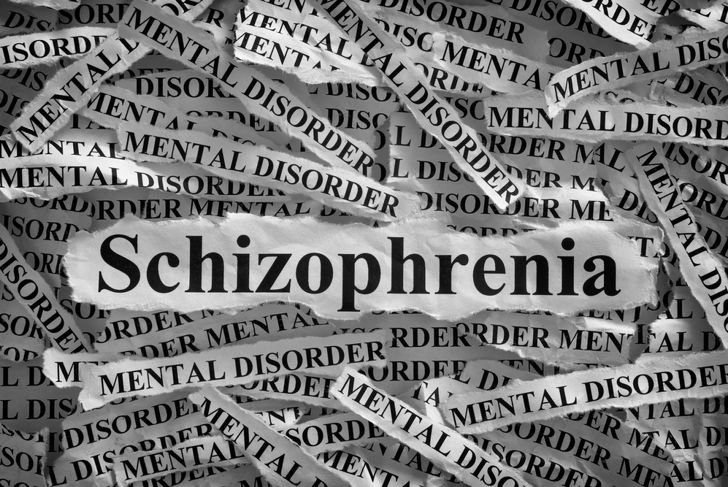Schizophrenia is a complex mental health disorder that affects an individual’s ability to think, feel, behave, and relate to others. The condition has several possible causes, including genetics and environmental influences, abnormal brain chemistry, stress, and a history of mind-altering drug abuse. Symptoms usually begin between the ages of 16 and 30. There are no lab tests available to detect schizophrenia. Diagnosis is a complex process due to the relapse and remission cycles of the disease. However, doctors can evaluate a variety of symptoms, categorized as positive, negative, and cognitive, to determine a schizophrenia diagnosis.
Early Warning Signs
Although the symptoms of schizophrenia can appear suddenly, in most cases, the individual experiences a gradual onset. People closest to the person may sense changes in the person’s behavior. They may notice that the individual has become unmotivated, emotionless, and indifferent about their surroundings. Schizophrenia causes a decrease in attention span. Work or school performance usually declines. Additionally, the person may neglect his or her appearance, stop participating in activities or hobbies, and become increasingly reclusive. They may also begin to express unusual thoughts or suspicions.
Delusions
About 90% of people who have schizophrenia begin to express false, illogical beliefs called delusions, one of the positive symptoms doctors use to determine a diagnosis. Positive symptoms are not “good,” but rather additive, as opposed to negative symptoms, which take away a trait. The individual may communicate a fear that other people are reading their thoughts or monitoring them. Some may insist that a story they read in the newspaper or someone they saw on television is attempting to send them a personal message. They may believe that people are plotting against them or trying to poison them. Some people with schizophrenia experience delusions of grandeur, such as having unusual powers. Others believe that they are famous historical or religious figures. The person insistently holds on to these delusions despite the presentation of facts.
Hallucinations
Another positive symptom of schizophrenia is hallucinations. Research shows that about 70% of people diagnosed with schizophrenia experience hallucinations, which may be auditory, visual, or olfactory. Other people do not see, hear, or experience these sensations. However, for the individual, the hallucinations are very real and can be frightening. Auditory hallucinations are the most common and may be described as threatening voices or whispering. Visual hallucinations are objects, patterns, lights, or people that aren’t there. Olfactory hallucinations are those involving tastes or smells, both good and bad. Taste hallucinations, for example, may cause a person to stop eating because the food smells or tastes like it has been poisoned. This is also an example of a hallucination supporting a delusion. The key difference between the two is that hallucinations are unreal sensations while delusions are unreal beliefs.
Bizarre or Disorganized Behavior
In addition to other positive symptoms and behaviors associated with schizophrenia, doctors look for signs of disorganized or bizarre behavior. Others may believe that these behaviors have no purpose, but for the person experiencing schizophrenia, these behaviors are necessary. The individual may exhibit a lack of inhibition or impulse control. Responses may become irrational, unpredictable, or inappropriate. Individual often reaches the point where they are unable to complete goal-oriented activities such as self-care and other routine practices.
Disorganized Speech
People with schizophrenia have difficulty concentrating or maintaining a consistent train of thought. Disorganized speech is a positive symptom of schizophrenia. The individual may respond to questions in an incoherent or illogical manner or shift rapidly from one unrelated topic to another. Another common symptom is the use of made-up words or phrases that seem incomprehensible or nonsensical to others. Some people with schizophrenia experience a speech phenomenon called clang, the verbalization of rhyming words and phrases that have no apparent meaning because the individuals associate the words based on sounds rather than concepts.
Speech Abnormalities
Some research indicates that linguistic disorganization may play a central role in schizophrenia. Although many people believe schizophrenia originates in the ability to process relevant thought, speech abnormalities could also define core symptoms, say researchers. A person with schizophrenia breaks down language configuration differently than someone who does not have the illness. They are easily derailed in a conversation and unable to make a point. Those with schizophrenia cannot structure a sentence in a grammatically accurate or logical way. Research also suggests people with schizophrenia experience a decline in first-person ownership of self-generated thoughts. For example, instead of saying “I am tired,” the individual might say, “He is tired.”
Psychomotor Problems
Agitated body movements are a positive symptom of schizophrenia, which may appear in the form of repetitive actions or unusual mannerisms. Some people with schizophrenia show increased clumsiness and decreased motor coordination. They may also present varying degrees of sensory integration, the ability of the brain to process and react to touch, movement, body awareness, sight, sound, smell, taste, and the pull of gravity. Body rigidity and the presence of tremors while at rest are also possible psychomotor signs of the disease.
Altered Sleep Patterns
Most people with schizophrenia experience sleep disturbances, and this is often an early sign of the onset of the disease. Mental health experts say people with schizophrenia experience comorbid sleep disorder, a combination of insomnia, sleep apnea, and restless leg syndrome. Some people with schizophrenia also experience periodic limb movement disorder, where the limbs move involuntarily during sleep (this differs from restless leg syndrome because the movements do not keep the individual awake). These symptoms and lack of adequate sleep can exacerbate schizophrenia and result in serious psychosis.
Cognitive Impairments
When a person has schizophrenia, they have difficulty thinking clearly. Many mental health professionals consider cognitive impairment a core feature of the disease. Functions that depend on working memory, such as remembering a phone number, generating a strategy for problem-solving, or planning an outing are difficult for those with schizophrenia. Additionally, a person with schizophrenia lacks the capacity for long-term memory and struggles to retain new information. Schizophrenia reduces mental speed and reaction time as well, which interferes with athletic performance and creative pursuits.
Negative Symptoms
Healthy people innately exhibit normal behaviors. Mental health clinicians refer to the absence of these normal behaviors as negative symptoms and use them to diagnose schizophrenia. Doctors have more difficulty evaluating negative symptoms, often mistaking them for clinical depression. Like those with clinical depression, people with schizophrenia often lack enthusiasm or emotion. They do not maintain consistent eye contact and their facial expressions are often flat and non-expressive. Social withdrawal, apathy, and an inability to experience pleasure or joy are common signs. As with other symptoms of schizophrenia, negative symptoms may increase or change in severity over time.

 Home
Home Health
Health Diet & Nutrition
Diet & Nutrition Living Well
Living Well More
More




















